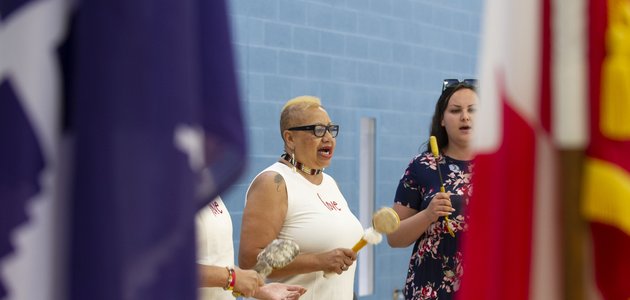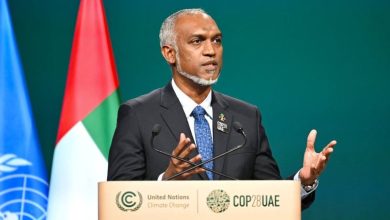To commemorate National Indigenous History Month, the Aboriginal Community Consultative Committee and the Community Partnerships & Engagement Unit Aboriginal Peacekeeping of the Toronto Police Service held a celebration at the Wellesley Community Centre on June 5.
Chief Myron Demkiw stated, “As we reflect on the theme, we acknowledge that policing has and continues to have a role in the systemic racism that negatively impacts Indigenous communities.” Tending to this beginnings with us. It requires us to acknowledge Canada’s true past, recognize that we must change, and then facilitate these long-overdue changes. Our Race and Identify Based Data Collection Strategy, which is a crucial component of our Service’s commitment to equity, transparency, and accountability, demonstrates that we have made some progress in this regard.
The Chief stated that removing systemic bias and discrimination caused by the Service’s procedures and practices requires analyzing and reporting on race- and identity-based data.
“We accept that this work will help us in our journey to convey fair and unbiased policing administrations to all Torontonians, including Native people groups,” said Demkiw. ” I want it to be clear that our Service has the potential to do better and will. We will engage with Indigenous community members in more meaningful and culturally sensitive ways. We will implement reforms that help us build relationships with all of the Indigenous communities we serve that are stronger and more meaningful, and we will find ways to reduce the inequality that currently exists.
The Truth & Reconciliation Report, The National Inquiry Into Missing & Murdered Indigenous Women & Girls, The Missing & Missed Report, and The 81 Recommendations for Police Reform are just a few of the reports that have called on the Service to implement recommendations and effect real change over the past few years.
“We are focused on this work,” added Demkiw. ” The Toronto Police Service will listen, learn, and act much more effectively as we plan our next steps.
The Chief said that the Neighborhood Community Officer program is also a good way to make connections at the local level.
He stated, “We know that these interactions are essential in our efforts to rebuild trust by engaging regularly with the many Indigenous community members across our city.” Our members will continue to gain a better understanding of Indigenous customs, traditions, values, and history through additional outreach and training.
Canadians observe Public Native Individuals Day on June 21 to respect the set of experiences, legacy and variety of Native people groups in Canada.
Frances Sanderson, co-chair of the Aboriginal Consultative Committee, gave the opening blessing while the Red Bear Singers sang a few songs.
Auriele Diotte, a Metis dancer, performed and led the community members and police officers through the 7-Step Dance in a lighthearted manner.
The Urban Indigenous Education Centre’s Thunder Jack served as Master of Ceremonies.
Additionally, the event provided an opportunity to acknowledge the current Indigenous communities’ strength.
Lisa Kostakis, a member of the Toronto Police Services Board, stated, “While we must certainly celebrate, it is also critical that we examine the greater context of examining our treatment of Indigenous people in our country, both historically and in current times, as we forge a collective path forward that honors the past and accounts for its failures.” Dialogue and genuine mutual respect are the foundations of this path.
“This includes the ongoing and recent discoveries of mass graves containing Indigenous children who were students in Canada’s Residential Schools. Our thoughts and prayers are with the families and communities that have lost loved ones, the survivors of the Residential School system, the children who are still missing, and the communities that have been impacted the most by these horrifying discoveries.
Kostakis stated that it is essential to recognize that true reconciliation necessitates acknowledging that the traumatic past continues, that this was a reality for far too many, and that discrimination continues to have a significant impact even today.
She emphasized, “We must acknowledge and come to terms with the reality that the powers of the state have been used to harm sometimes, and sometimes in horrific ways.” Simultaneously, there is trust. We perceive that we advance best from those upon whose conventional region we currently unassumingly live. We are aware that there is still a significant amount of healing to be done. We can and should accomplish more and it is important that we commit ourselves completely earnestly and unassumingly to this work.”
The Board recently received funding from the Toronto City Council to hire an Indigenous Engagement Advisor.
Key partnerships with Indigenous Nations and their communities, organizations, city partners, and key stakeholders will be established and maintained by the individual. A governance and oversight strategy for the Service’s implementation of the City’s Reconciliation Plan will also be developed and implemented by the appointed individual.





